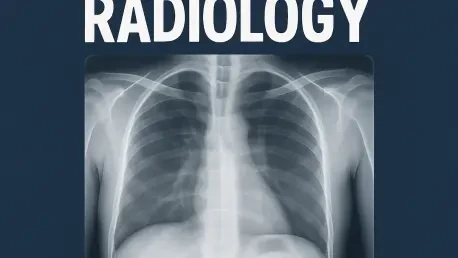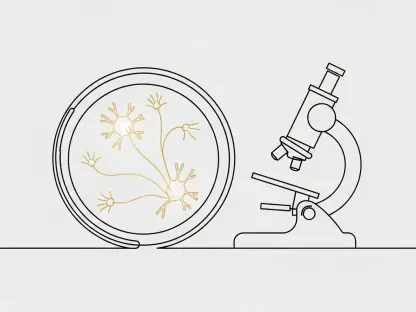Belgium is embarking on a significant initiative aimed at transforming the landscape of radiology referrals, focusing on enhancing the justification and appropriateness of such referrals. This effort responds to Belgium’s high per capita rate of CT scans, positioning the country among the top in Europe. The multifaceted project engages a broad coalition, including the Belgian Medical Imaging Platform, the Federal Public Service for Public Health, the National Institute for Health and Disability Insurance, and the Federal Agency for Nuclear Control. These entities collaborate with medical sector representatives to drive the effective implementation of this forward-thinking reform.
Initiative Framework and Goals
Developing a Nationwide Digital Referral System
Central to Belgium’s initiative is the establishment of a digital referral prescription system specifically for radiology, intended to integrate seamlessly into existing infrastructures within hospitals, general practitioners’ practices, and radiology departments. By developing a government-funded prescription search support platform, this approach aims to link with external solutions featuring evidence-based practice guidelines. This strategic methodology is designed not only to streamline processes but also to encourage consistency and appropriateness in the application of radiological referrals.
In line with these efforts, the project promotes a culture of continuous improvement and accountability through the use of prestartup safety reviews and rigorous data collection protocols. A significant measure of success will lie in the initiative’s capacity to assess its impact on referral appropriateness as well as the functioning of radiology departments, with plans to begin pilot projects next year. By fostering a collaborative environment, stakeholders hope to facilitate a smoother transition into more standardized practices that will benefit practitioners and patients alike.
Engaging Stakeholders and Overcoming Challenges
The initiative also prioritizes engaging a wide variety of stakeholders, recognizing their vital role from the inception phases. These participants have been intrinsic to the project’s development, bringing together diverse perspectives that enhance understanding and practical application. Notably, research studies, such as the EU-Just CT project, provide much-needed empirical support for this initiative, highlighting the effectiveness of imaging referral guidelines. These guidelines underline the significance of emphasis on patient safety, justification, and overall appropriateness of medical imaging.
Belgium’s existing healthcare climate emphasizes volume and productivity, embedding a production-based mentality that often prioritizes the number of procedures over quality. This model has inadvertently contributed to an oversupply of imaging procedures, with studies indicating that a significant portion may be unwarranted. This troubling trend underscores the necessity for implementing robust guidelines and systems designed to redefine standards and expectations within radiological practice.
International Comparisons and Implications
Cross-Border Approaches in Radiology Referrals
Examining international differences in radiology referral practices highlights some key contrasts, particularly in the Netherlands and Germany. In these countries, general practitioners face restrictions against prescribing CT and MRI exams, a sharp contrast to the autonomy found in Belgian medical practice. This divergence has significant implications, contributing to different utilization rates and approaches to patient care. The Belgian model, characterized by considerable professional freedom for physicians, often prioritizes patient requests, occasionally at the expense of adherence to strict evidence-based guidelines.
This professional freedom has stimulated a culture where resistance to standardized practices sometimes prevails. Such resistance is exemplified by recent healthcare-related protests targeting reforms initiated by Belgium’s health minister. The process of expanding these evidence-based practices into other healthcare areas, such as antibiotic usage and clinical biology, necessitates addressing these cultural challenges head-on. Managing these perceptions will be critical in promoting broader acceptance and sustainable implementation.
Technological Solutions and Pilot Studies
One potential solution is the application of clinical decision support systems such as the ESR iGuide, which provides evidence-based appropriateness scores for imaging studies. Implementing such systems across Belgium’s eHealth infrastructure could significantly reduce the prevalence of unnecessary imaging. By standardizing workflows and enhancing the educational dimension of radiology practices, these systems have demonstrated success in other European contexts, reducing unnecessary imaging by significant margins.
Belgium’s potential for success with these technologies depends largely on the adept integration and engagement of local IT systems and clinician participation, particularly among general practitioners. By embedding guidelines directly into the national platform as part of broader systemic reforms, expectations are high for positive outcomes that both streamline referral processes and reduce the unjustified demands placed on radiologists.
Cultural Resistance and Adoption Strategies
Balancing Autonomy and Regulation
A key obstacle faced by Belgium’s radiology initiative is the cultural emphasis on professional autonomy among medical professionals. This autonomy has historically enabled a degree of flexibility and patient responsiveness, sometimes at odds with rigorous guideline adherence. Concurrently, patient expectations and demands exert substantial influence on medical practitioners, creating a complex dynamic between patient satisfaction and adherence to optimal medical practice guidelines. Doctors fear potential loss of patients if they fail to meet such demands, further complicating efforts to implement standardized referral processes.
Overcoming these challenges requires navigating intricate intersections of autonomy, compliance, and reform, and necessitates collaboration and dialogue across the medical community. By fostering an environment conducive to feedback, engagement, and continuous training, the initiative can encourage a smoother transition toward standardized practices that benefit all parties involved.
Collaborative Integration and Future Prospects
Belgium is undertaking an ambitious initiative designed to revolutionize the process of radiology referrals by prioritizing both justification and appropriateness. This initiative arises in response to the country’s notably high number of CT scans per capita, placing Belgium among the top-tier nations in Europe for such procedures. The project is comprehensive, engaging a diverse coalition of stakeholders aimed at reshaping the current system. Key participants include the Belgian Medical Imaging Platform, the Federal Public Service for Public Health, the National Institute for Health and Disability Insurance, and the Federal Agency for Nuclear Control. These organizations are actively working together with representatives from the medical field to ensure the successful rollout of this innovative reform. Their joint efforts aim to increase efficiency and improve medical outcomes by ensuring that radiology referrals are genuinely necessary and appropriate, ultimately fostering a more responsible and effective healthcare environment in Belgium.









